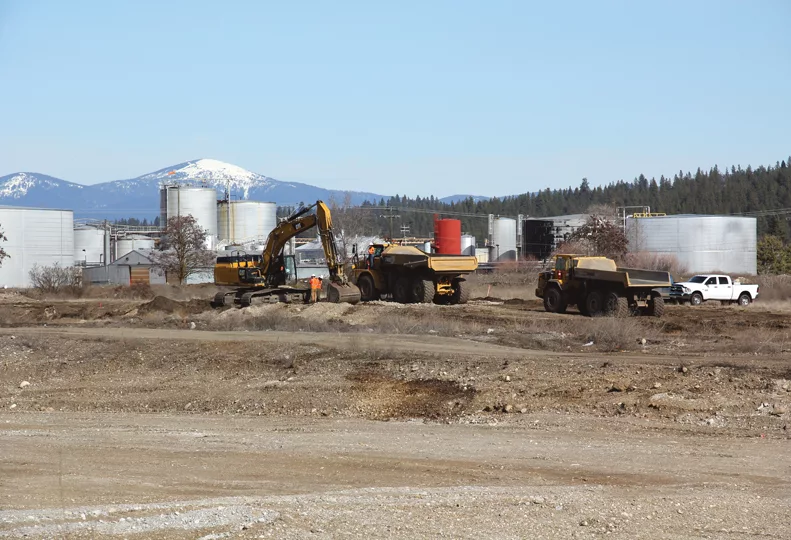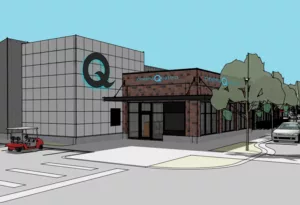
Home » North Spokane Corridor projects are in full swing
North Spokane Corridor projects are in full swing
Next phases start in northeast Spokane

March 26, 2020
The signs of work on the North Spokane Corridor in northeast Spokane are readily visible now.
When completely finished in 2029, the $1.49 billion project ultimately will create a freeway linking Interstate 90 in east Spokane to U.S. 395 north of Spokane. In 2015, the Legislature passed its Connecting Washington package, which provided full funding to create the NSC over multiple years.
“We can’t outspend the annual appropriations for the Connecting Washington package,” says Washington state Department of Transportation design project engineer Bob Hilmes.
Bids will go out in July for improvements to Wellesley Avenue – including construction of an interchange there – and a significant stretch of highway running from Columbia Avenue to the Spokane River, Hilmes says.
Construction could start by October, he says.
Between mid-2017 and mid-2019, $30 million was earmarked for the NSC. From mid-2019 to the middle of next year, the NSC will see $100 million committed, according to the project timeline. Another $150 million will be committed from 2021 to 2023; $190 million in the 2023 to 2025 biennium; $170 million from 2025 to 2027; and $61 million to conclude the project in the 2027 to 2029 biennium.
For the time being, however, the passage of the voter-approved Initiative 976, a measure to cut car-tab taxes, created a six-month delay in project funding while the Legislature mulls other potential funding sources.
Last year, work began on a realignment project of a BNSF Railway Co. line in the Hillyard area known to have oil contaminants deep in the soil.
Work continues on that project with Halme Construction Inc., of Airway Heights, as the project contractor.
Known as the Black Tank Property, the site at 3202 E. Wellesley, in the Hillyard neighborhood, was once occupied by a massive above-ground tank that stored petroleum products for fueling train engines.
BNSF and the Washington state Department of Ecology are engaged in a multimillion-dollar cleanup operation to protect drinking water without slowing down the freeway project. Work on that effort is expected to be completed in 2021.
The track realignment cost is estimated at $77.5 million.
Latest News Real Estate & Construction Government
Related Articles
Related Products




